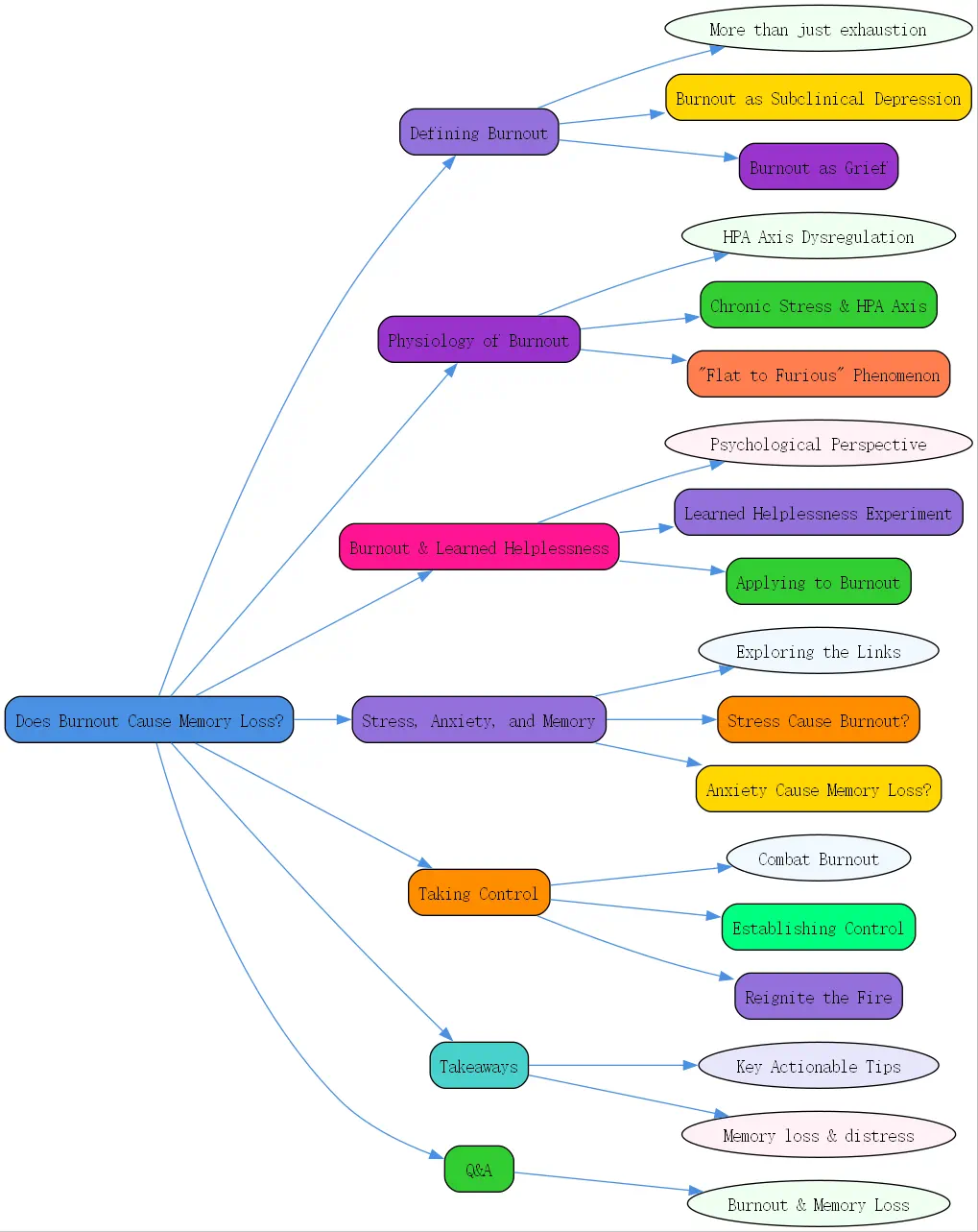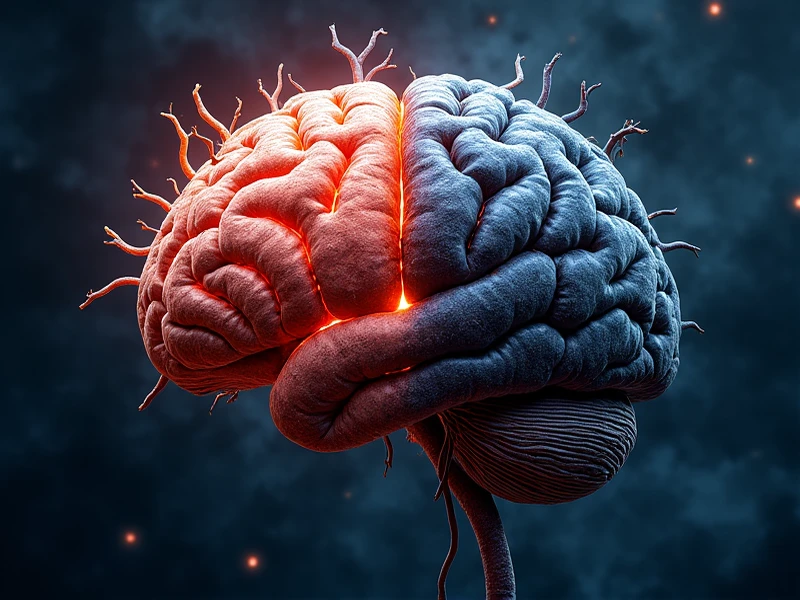Defining Burnout: More Than Just Exhaustion

Burnout is often misunderstood as merely feeling tired or overwhelmed. Yet, it is a complex psychological state characterized by deep exhaustion, emotional detachment, and diminished productivity. At BrainTalking, burnout is sometimes described as subclinical depression, which shares overlapping symptoms with major depressive disorder but doesn’t meet the clinical diagnosis.
Burnout as Subclinical Depression
Burnout, like subclinical depression, manifests through chronic fatigue, reduced motivation, and emotional flatness. It often stems from prolonged exposure to stress and can lead to a lack of energy or interest in tasks, relationships, or personal pursuits. Even though it doesn’t always meet the criteria for major depression, individuals experiencing burnout are often on a path that can lead to more significant psychological challenges.
Burnout as a Form of Grief
Burnout can also mimic grief, particularly disenfranchised grief—mourning losses that aren’t socially acknowledged or openly discussed. For example, losing a dream project at work, having a client drop out unexpectedly, or facing setbacks in a long-term commitment can all lead to feelings of hopelessness and helplessness. When people aren’t allowed the time or space to process these griefs, burnout can take hold.
Burnout doesn’t discriminate. It affects people across all professions and walks of life, especially those who feel their efforts are futile or unrecognized. Whether it’s the slow erosion of energy or the weight of unmet expectations, understanding these nuanced causes of burnout can offer insight into how it impacts memory and overall well-being.
The Physiology of Burnout: HPA Axis Dysregulation
How Chronic Stress Affects the HPA Axis
Burnout has physiological roots tied to HPA Axis dysregulation, the body’s stress-response system. The HPA Axis governs how your body handles stress by producing hormones like cortisol. Chronic and unrelenting stress can overwhelm this axis, leading to decreased sensitivity to stress signals over time.
When this dysregulation occurs, a person may become less responsive to positive stimuli and overly reactive to negative ones. This state often leaves individuals feeling “flat”—emotionally blunted, unmotivated, and fatigued on normal days—while also experiencing intense emotional outbursts during stressful situations.
The “”Flat to Furious”” Phenomenon
Imagine waking up and feeling like nothing excites you anymore. Everyday tasks feel joyless, and even positive experiences fail to register. Then, at the slightest adversity, such as a miscommunication at work, you snap with an outsized emotional reaction. This is the “flat to furious” phenomenon often seen in burnout. It’s not just emotional—these responses arise from the HPA Axis’s compromised functioning after encountering too much stress for too long.
The good news is that recalibrating your HPA Axis is possible through intentional actions, such as reducing overall stress, focusing on well-being, and rebuilding your mental resilience over time. Addressing burnout’s physiological roots is paramount because of its close ties to memory loss and cognitive dysfunction.

Burnout and Learned Helplessness: A Psychological Perspective
The Experiment of Learned Helplessness
One psychological concept that explains burnout’s cognitive and emotional toll is learned helplessness. This term originated from experiments involving animals exposed to uncontrollable and constant stress. In these experiments, dogs subjected to electric shocks without an escape eventually stopped trying to avoid the pain, becoming passive and resigned.
In burnout environments, humans can experience a similar learned helplessness. Faced with continual pressures or failures—whether in relationships, careers, or personal goals—they may start to believe that effort is futile.
Applying the Concept to Burnout
This learned helplessness perpetuates a cycle in burnout. As individuals feel increasingly unable to alter their circumstances, their mental energy and emotional reserves deteriorate. On a physiological level, this can further impair the HPA Axis and prolong the stress response. Cognitive changes also arise, with individuals finding it harder to focus, think clearly, or retain information—all critical functions tied to memory.
Physiological and Cognitive Changes in Burnout
Burnout has far-reaching consequences for both body and mind. Chronic stress not only robs the energy needed to cope, but it also affects memory by interfering with essential brain functions linked to cognitive performance, such as attention and learning consolidation.
Understanding burnout is the first step toward recovery, especially given its role in stress, anxiety, and memory loss.
Stress, Anxiety, and Memory: Exploring the Links
Does Stress Cause Burnout?
The link between chronic stress and burnout is undeniable. Prolonged exposure to stress for weeks, months, or years leads to the HPA Axis dysregulation discussed earlier, which forms the backbone of burnout. Stress hormones, such as cortisol, wear down your mental and physical resilience over time.
To combat stress and reduce burnout, prioritizing safety and setting boundaries is essential. For example, allocating “protected time” during the day for rest or reflection can help reduce stress levels while boosting the ability to focus and recharge.
Recalibrating Your HPA Axis
Recovering from burnout and resetting the HPA Axis happens gradually. Start small, reinforcing positive habits that bring calm and stability back into your life. Expect setbacks—they’re a natural part of recovery—but remain committed to progress. Whether it’s mindfulness, therapy, or physical exercise, these strategies form the cornerstone of stress relief and burnout prevention.
Can Anxiety Cause Memory Loss?
Anxiety can significantly affect cognitive function, particularly memory. When stress hormones flood the body, they interfere with how the brain encodes and stores information. Prolonged anxiety exacerbates this effect, impairing short-term memory and, eventually, retrieval of long-term memories.
To protect memory and reduce the cognitive impact of anxiety, strategies such as practicing relaxation techniques, limiting exposure to stressors, and addressing anxiety triggers head-on can be effective.
Does Anxiety Cause Memory Loss?
The evidence supporting the link between anxiety and memory issues highlights both short-term and long-term impacts. Research shows that individuals with chronic anxiety struggle with focus and recall due to intrusive, stress-related thoughts.
On a biological level, elevated cortisol levels—a hallmark of anxiety—interfere with hippocampal functioning, an area critical to memory processing. While this connection might seem daunting, reversing memory impairment is possible by addressing anxiety through therapy, mindfulness, and controlled stress exposure.
Taking Control: Strategies to Combat Burnout and Improve Well-Being
Establishing a Sense of Control
One of the most significant factors in overcoming burnout is recovering a sense of empowerment over your life. Whether in work, at home, or in relationships, identifying areas you can control creates a foundation for positive action.
For example, if work stresses feel overwhelming, start with manageable actions, like clearing your email inbox or delegating tasks to peers. In family or health matters, focus on small steps—like scheduling checkups or advocating for personal time—to regain control incrementally.
Practical Steps to Reignite the Fire
- Start Slow and Expect Setbacks: Recovery isn’t a sprint—it’s a marathon. Begin with achievable goals, like introducing five minutes of mindfulness daily, and scale over time.
- Remove Stressors: Identify and eliminate or minimize unnecessary triggers that exacerbate burnout. This might involve tweaking environmental factors, boundaries with others, or workflow.
- Establish a Sense of Safety: Focus on building emotionally and physically safe spaces where you can recharge, whether at home, work, or beyond. Psychological safety boosts your ability to tackle larger burnout challenges over time.
Takeaways
Burnout can indeed cause memory loss, as well as emotional and physiological distress stemming from stress and anxiety. Proactively managing mental health and prioritizing control are essential steps to combat these challenges.
Key Actionable Tips
- Recalibrate the HPA Axis gradually.
- Address stress and anxiety with relaxation techniques.
- Establish boundaries to protect emotional resources.
- Seek professional advice when necessary to overcome burnout.
For more information on related topics, don’t miss Can Depression Cause Memory Loss to explore how depression overlaps with burnout and memory issues.
Q&A Section
Q: How does burnout lead to memory loss? Burnout disrupts the body’s HPA Axis and stress-related functions. Chronic exposure to stress hormones reduces hippocampal efficiency, impairing memory encoding, retrieval, and consolidation. It also diminishes focus and cognitive clarity, leaving individuals unable to retain and recall information, especially during anxious or stressful moments. Addressing burnout starts with reducing stress levels and advocating for personal boundaries.






